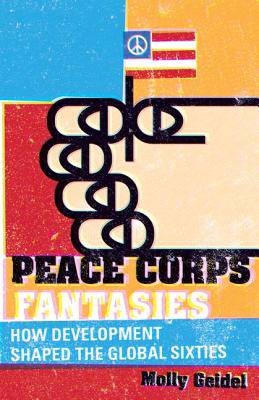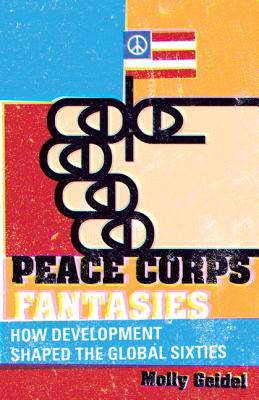
- Retrait gratuit dans votre magasin Club
- 7.000.000 titres dans notre catalogue
- Payer en toute sécurité
- Toujours un magasin près de chez vous
- Retrait gratuit dans votre magasin Club
- 7.000.0000 titres dans notre catalogue
- Payer en toute sécurité
- Toujours un magasin près de chez vous
Description
To tens of thousands of volunteers in its first decade, the Peace Corps was "the toughest job you'll ever love." In the United States' popular imagination to this day, it is a symbol of selfless altruism and the most successful program of John F. Kennedy's presidency. But in her provocative new cultural history of the 1960s Peace Corps, Molly Geidel argues that the agency's representative development ventures also legitimated the violent exercise of American power around the world and the destruction of indigenous ways of life.
In the 1960s, the practice of development work, embodied by iconic Peace Corps volunteers, allowed U.S. policy makers to manage global inequality while assuaging their own gendered anxieties about postwar affluence. Geidel traces how modernization theorists used the Peace Corps to craft the archetype of the heroic development worker: a ruggedly masculine figure who would inspire individuals and communities to abandon traditional lifestyles and seek integration into the global capitalist system.
Drawing on original archival and ethnographic research, Geidel analyzes how Peace Corps volunteers struggled to apply these ideals. The book focuses on the case of Bolivia, where indigenous nationalist movements dramatically expelled the Peace Corps in 1971. She also shows how Peace Corps development ideology shaped domestic and transnational social protest, including U.S. civil rights, black nationalist, and antiwar movements.
Spécifications
Parties prenantes
- Auteur(s) :
- Editeur:
Contenu
- Nombre de pages :
- 320
- Langue:
- Anglais
- Collection :
Caractéristiques
- EAN:
- 9780816692224
- Date de parution :
- 15-09-15
- Format:
- Livre broché
- Format numérique:
- Trade paperback (VS)
- Dimensions :
- 137 mm x 213 mm
- Poids :
- 385 g







